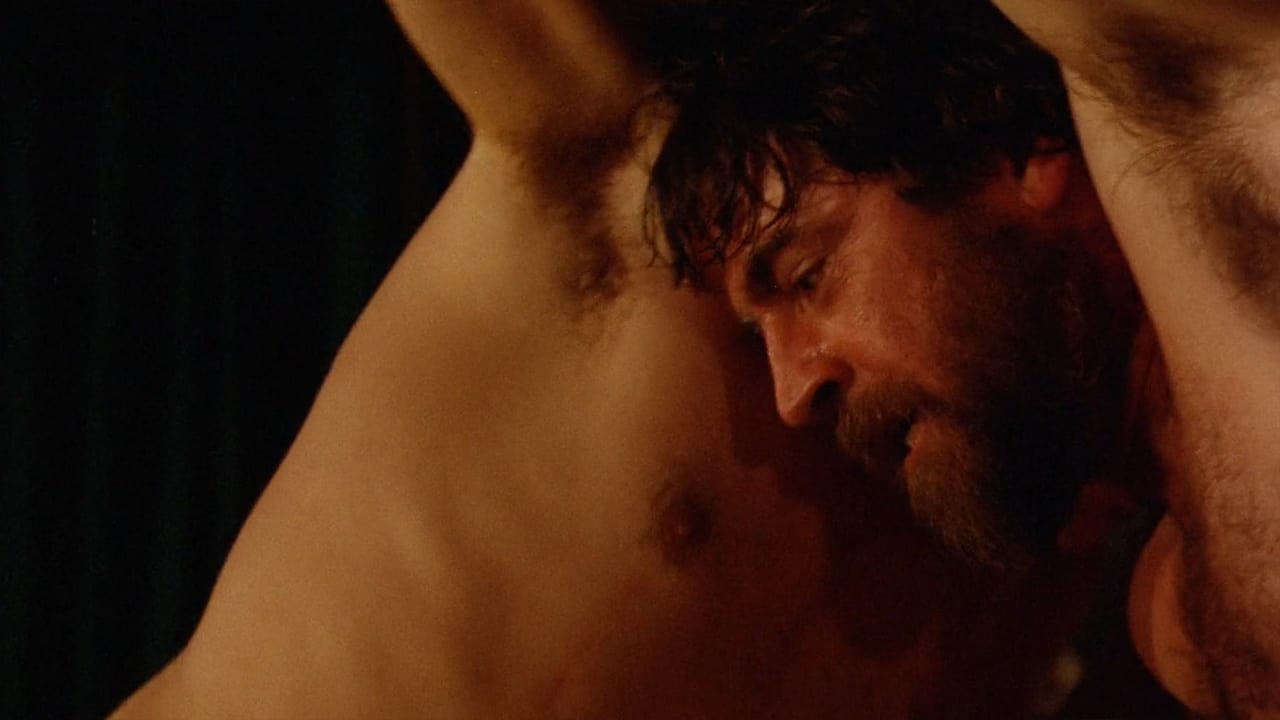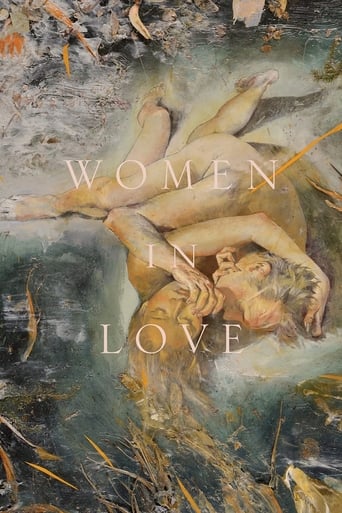

I've always been attracted to this movie. It came out where young people were exploring more freedom in sexuality and sexual expression. A particularly memorable scene involves Alan Bates describing the correct way to eat a fig. There is never been a more sensual description of a vagina in bloom than Bate's fig description, at least on film. Ken Russell does a wonderful job in bringing this D.H. Lawrence to life. The movie beautifully, and repeatedly, contrasts the sensuality to life with the brutality of the industrial revolution in England immediately after WWI when two sisters, Gudrun Brangwen (Glenda Jackson) and Ursula Brangwen (Jennie Linden) find two very different types of men (Alan Bates and Oliver Reed) to love. Conventionality also clashes with idealism in this movie too. This is made clear when the two couples decide to vacation in Zermatt. For me, one of the most memorable visual shots of the movie occurs when the two couples first arrive in Zermatt, and Glenda Jackson holds her arms in the air to greet the Matterhorn (Mont Cervin) as if her arms were the labia of a vagina, opening widely to fully embrace an erect penis. In this shot, this is nature representing the joy of human sensuality.
... View MoreKen Russell always was a unique director with a style unlike any other. He was also a very controversial one with some great films but also ones where his excesses tended to get in the way too much(Lisztomania being a primary example). Women in Love is an example of Russell in restrained mode, like he showed in his documentaries on Elgar and Delius, and as of now I consider it his best. It is a beautifully filmed film and looks striking throughout, not opulent but there is a real eye for details and evocativeness here. Russell doesn't allow any of his excesses to get in the way, on the most part his directing is very restrained- especially compared to Lisztomania and his Strauss biography Dance of the Seven Veils, to a lesser extent also The Devils which still managed to be a great film and one of his most fascinating- with some slightly over-exaggerated moments which actually were in keeping with the writing. Women in Love is exceptionally well written, the story is quite stark but because of the complex characters and so-many-different emotions it is always involving and it certainly kept me glued me to the screen. The nude male wrestling scene is the most talked about scene and for good reason, a very daring scene for the time and a fine example of what is so good about the story. The script is talky but incredibly intelligent and thought-provoking, the detail to characterisation and their emotions is one of Women in Love's high points. Furthermore, it is very respectful to the original source material(if condensed) and is one of Russell's most coherent films. Because of Russell's restraint in his directing, he gives his actors a real leeway to act. The best in the cast are Glenda Jackson and Oliver Reed. Jackson is a revelation in one of her most difficult roles(perhaps even the most difficult role of hers), managing to be formidable and heartfelt. After seeing Women in Love, I've changed my mind about saying Oliver Reed's best performance was in the Devils, he's brilliant there but as of now he has never been better before or since Women in Love. Alan Bates has a commanding screen presence and Jennie Linden, while not quite on the same level as the other three, is very touching. Overall, outstanding and Russell's best film out of an understandably controversial filmography. 10/10 Bethany Cox
... View MoreThe battle of the sexes and relationships among the elite of Britian's industrial Midlands in the 1920s. Gerald Crich (Oliver Reed) and Rupert Berkin (Alan Bates) are best friends who fall in love with a pair of sisters: Gudrun the sculptress (Glenda Jackson) and Ursula the schoolteacher (Jennie Linden).I just wanted to mention the nude wrestling scene. Wow. To have this in a film is pretty incredible, but then to have it with a notable actor (Reed) is even more incredible. A bold move for everyone involved.The film won the Golden Globe Award for Best English-Language Foreign Film, an honor they discontinued in 1973 when it occurred to everyone that this makes no sense.
... View MoreWomen In Love is one of the strangest movies I've seen in a while, and I've been watching lots of surrealist masterpieces lately. I guess in these movies the strangeness ends up making sense. Whereas in Ken Russell's movie we have stark realism constantly marred by misplaced corny scenes.For instance, and no doubt owing to the influence of the free love period this movie was made in, we have many scenes of outdoor nakedness, with people rolling around in the grass and making love. It seems Larry Kramer read the novel and only registered the dirty bits (of which there aren't many really). But this is based on a D. H. Lawrence novel, even if it's not the most explicit one; but it doesn't matter: people expect lots of sex from Lawrence and Russell and Kramer were only too happy to oblige.Left out were most of the philosophical aspects of the novel, but fortunately not its homosexual subtext, one of the most interesting things about the novel. Left are the bohemian aspects of the novel, left are the tense relationships between the Brangwen sister and father; left is the relationship between Gerald Crich and his dying father. The movie is a streamlined adaptation of a five-hundred-page, hardly-visual novel.No doubt the story sidetracked in favor of pretty pictures. At times one feels Russell is more interested in this as a period piece than as a narrative. With the help of Billy Williams, he shoots coal mines and streets in all their squalor, and nature and bodies in all their beauty. It's great to look at, not necessarily good to watch.The acting is top notch, and I'm shocked only Glenda Jackson got an Oscar for it. Alan Bates, Oliver Reed (his greatest performance ever?) and Jennie Linden are all amazing in their incoherent but heartfelt roles.All in all it's a movie worth watching.
... View More